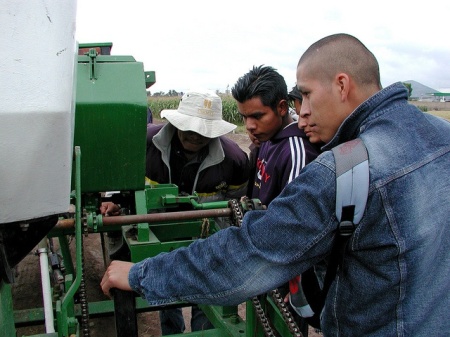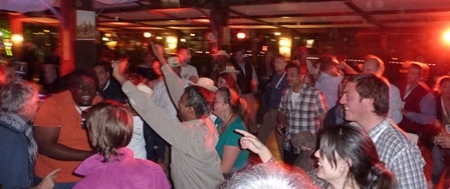#IGiveAShit #WTD2012
In
2001, a Singapore businessman Jack
Sim, toyed around creating an
organization that would address the issues that every human passes around in
their lifetime. It wasn’t that of hunger or access to water which are claiming
lives globally but that of sh*t. Yes,
human shit. He founded the World
Toilet Organization with the aim of bringing to light
issues affecting sanitation in developing countries. Eleven years on, his
efforts seems to be bearing fruit.
More than 2.5 billion people in the world don’t own a
toilet. This means that they defecate in the open and during heavy downpours,
their shit gets drained in to the all available water sources resulting water pollution,
spread of waterborne diseases and subsequent deaths. This is what led to the
creation of World
Toilet Day celebrated on 19th
November by close to 19 counties with the aim of
raising global awareness on the struggles facing the area of sanitation. This year’s theme seems so straight to the
point, I Give a Shit do you?
Closer home sanitation is still a big issue we have to
deal with. Only 74% of households in
Kenya have toilets, 62% being in the coast region with 40% of these households
being in Kwale. Taita Taveta happens to take lead with 95% households having
toilets.
This has resulted to increased awareness creation by Plan international
Kwale in partnership with the Ministry of Public Health and
Sanitation Kwale. Through their Community Led Total
Sanitation (CLTS) model which is founded on three key words Shame, Fear and Disgust, they have managed to trigger – villages in Kwale County. Nevertheless,
some villages are yet to be declared Open Defecation Free (ODF).
But that isn’t the case with Mrihi wa Bibi and Mtasyvani
villages
Mrihi wa
Bibi one of the ODF certified villages
In 2010, these villages became ODF under certification of
Government officials’ and Plan staff from Uganda, Zambia and Ethiopia. You
wonder how they achieved such a hefty goal.
“We helped each other in building of toilets” recalls one
of the villagers
This helped them pool up their energies which in turn
ensured all village members had latrines to dispose their waste
Two more years down the line 6 more villages (Kivingoni,
Makombe, Mkandamuzo, Tuu, Vuzo and Mazimalumi) out of the 13 have been ODF
certified. They have been practicing the same model and its results are more
than anticipated. In CLTS every member of the society is involved in the
sanitation process, the children, the parents, the government officers and
non-governmental organizations. No wonder the wide array in attendance during
the celebration day at Msulwa primary school.
A
village member receiving the ODF certificate on behalf of the village
Speaking during the event, the assistant District commissioner
drew a relation of CLTS with the Kenyan independence goal of Eradicating
poverty, ignorance and hunger. When a
community is educated on sanitation issues, ignorance departs them paving way
for the fulfillment of other goals. He further stated that the government of
Kenya had set the deadline of June 2013 by when all villages should be ODF.
“Build according to your ability. Any materials will
suffice as long as your poo gets down to the ground and you can conduct the
process without fear of being seen by others” he continued. He shifted the
theme to “I care my toilet, our health” to make it suit more the surroundings.
Most community members were still ingesting faeces from the fact that some
still hadn’t their toilets and hence defecated in the open. Despite the
challenges of loose soil in areas of Tiwi which crumbles the toilets with time,
he urged the communities to be united as even then would donors come in to help
them in case of such difficulties.
His Parting shot:
Our health, our responsibility. My health, your responsibility. Your health, my
responsibility
Personally I give a shit, do you?



